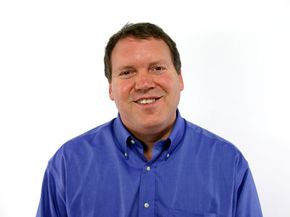
The endless curiosity of Marshall Brain helped educate, inform and inspire countless students, entrepreneurs and web surfers for decades before Brain's death on November 20, 2024.
Brain, 63, was the founder of HowStuffWorks, as well as an author and educator. Brain gained fame during the late 1990s when he created HowStuffWorks.com to give readers clear explanations about the workings of a wide range of subjects — how rocket engines work, how laughter works, how smoke detectors work and how bunker buster bombs work are just a few of the myriad topics Brain researched and wrote about for the website.
Advertisement
The popularity of HowStuffWorks led Brain to help create two television programs for the National Geographic channel about the mass production of various products. Brain also wrote books and gave speeches the future of robotics, the existence of God and the meaning of life, amongst other thought experiments.
In addition to his success in computer programming and media, Brain was the director of the Engineering Entrepreneurs Program at North Carolina State University.
Brain, who lived in Cary, North Carolina, is survived by his wife, Leigh Ann and their four children.
Advertisement
